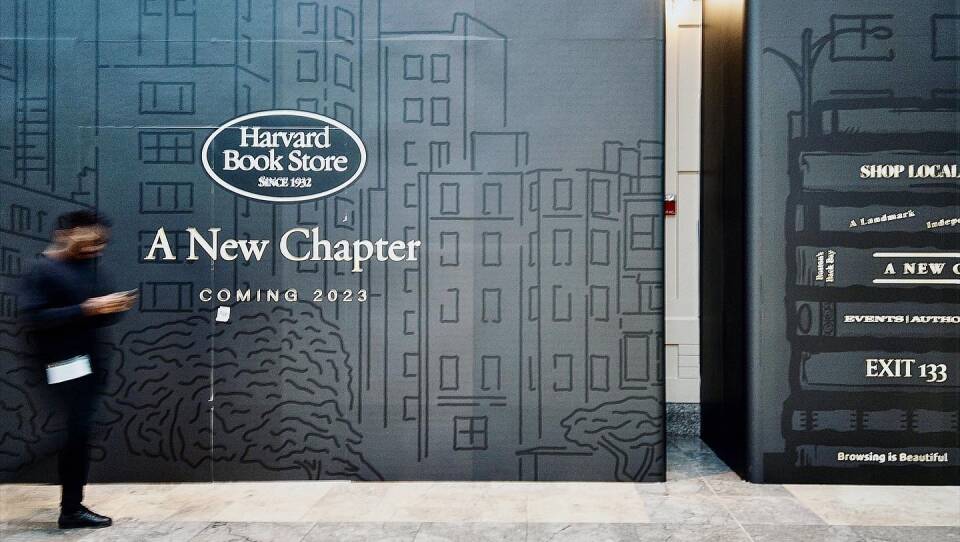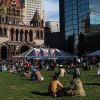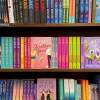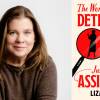The business of books has been booming, with a multitude of new bookstores popping up across the country and throughout Massachusetts.
IndieBound, a website that tracks independent bookstores, shows a plethora of bookstores in the Boston area. Some are new: Beacon Hill Books & Cafe, a five-story shop and restaurant; Porter Square Books: Boston Edition, an offshoot of the Cambridge location in the Seaport; Posman Books, which opened on Newbury Street in 2021; plus Rozzie Bound, a bookstore cooperative owned by its workers and customers that opened in January.
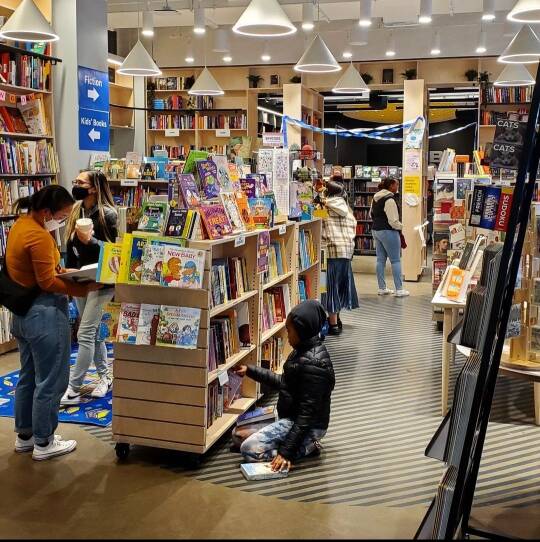
Even more are on the way.
In spring 2023, Provincetown’s East End Books is expanding with a Seaport location. A cat cafe-bookstore hybrid might be coming to Beacon Hill after the business won approval from the city’s Zoning Board of Appeal in December, according to the Boston Business Journal. And The Book Shop — the brainchild of Bing Broderick, former executive director of the Haley House, and Porsha Olayiwola, the current Boston poet laureate — plans to open in Dorchester mid-fall.
Independent stores are even taking over the previous homes of big box stores. Harvard Book Store is opening a location at the Prudential Center later this year in the spot of a former Barnes & Noble.
Booksellers and industry experts say the growth in independent stores is partly because of the pandemic. The loneliness of staying at home led to a renewed interest in reading and now many readers are seeking community and services that they simply can't get on Amazon or at a chain store.
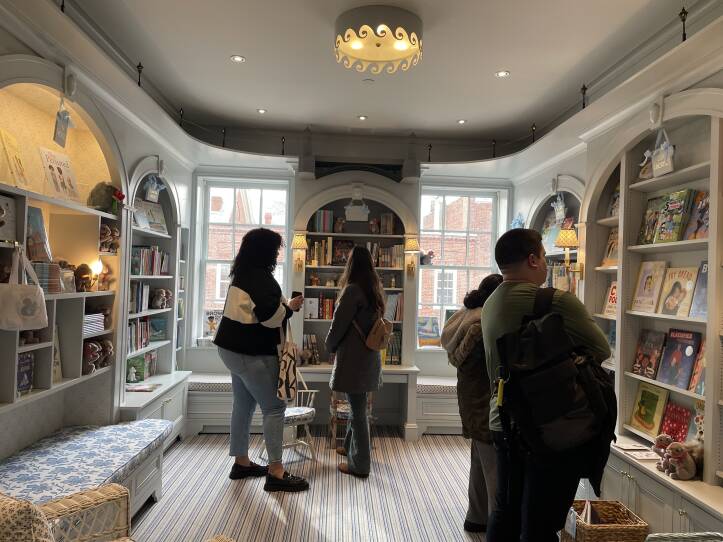
Allison Hill, chief executive officer of the American Booksellers Association, said the isolation of the pandemic led to a “renaissance of reading.” Now, people are buying books more than ever.
That's a big change. In June 2020, a survey of American Booksellers' Association members found that 20% thought they weren't going to be able to stay in business.
Today ABA membership is up 20% since the pandemic started, and sales increased 68% for ABA member stores from 2019 to 2022. There are also 329 new bookstores expected to open nationwide in the next two years.
“Right now we're definitely seeing a little bit of a shift as people go through sticker shock at the grocery store even, and kind of riding this wave with the economy,” Hill said. “But overall, we're hearing from a lot of stores that their sales are up, even though their costs are also up.”
Jim Milliot, editorial director of Publishers Weekly, said the surge in reading during the pandemic was a boon to local booksellers because people realized online retailers were not the best place to discover new authors.
“I think consumers got a little tired of that,” Milliot said. “Not sure of how well it works. And it's not it's not a real browsing experience. So that's one thing bookstores have definitely done is try to highlight that you can come in and browse around. They have recommendations for you.”
Booksellers are also becoming more innovative in their approaches. They have online stores, pop-up locations and often focus their stores to specific categories of readers. One such store is All She Wrote Books, an intersectional feminist and queer bookstore that opened in Somerville in 2020, which stocks books by female, LGBTQ+ and non-binary authors.
Social media is also helping to sell books. If you search “bookstore boston” on TikTok, you'll find videos with views totalling 2.5 million.
@curlyhairbiblio #greenscreen Reply to @blogbykt Giving some love to my favorite boston-area bookstores! #books #bookstore #booktok #bostontok #independentbookstore ♬ Love Grows (Where My Rosemary Goes) - Edison Lighthouse
“Stores often create displays around books popular on TikTok,” Hill said. “I think it speaks to the evolution of independent bookstores that they're learning how to optimize what they do through technology that used to be seen as other and different than what an individual store was all about, but is very much part of the new landscape.”
Ownership of bookstores is becoming more diverse, as well. Ninety-six of the new stores that have opened nationwide during the pandemic are owned by people of color, Hill said.
Bookstores offer a sense of community and culture for neighborhoods, Hill said. They often support local schools through donations, host author visits, promote literacy and champion diverse voices.
“There was a lot of isolation experienced during this pandemic that I think has made people really hungry to be back together in meaningful ways and to connect with other human beings. And I think independent bookstores offer that,” she said.
Roy Kamada, chair of the writing, literature and publishing department at Emerson College, said Boston has always been a literature-centric city. Many authors call the area home, and it's host to reading events such as the Boston Book Festival. Kamada said it's only natural that Boston is a good town for bookstores.
These shops help anchor communities, Kamada said, hosting writers and bringing readers together. “The intimacy of the bookstore space is something that's really important.”
Beth Ineson, executive director of the New England Independent Booksellers Association, said New England has historically been a challenging place to open independent retail stores because of how expensive commercial real estate is. But there has been a boom across the region as the pandemic opened up a lot of retail space, and the "Shop Local" movement has encouraged consumers to support these businesses.
The Civic Economics report “Unfulfilled,” created in collaboration with the ABA, found that shopping with independent bookstores creates four times more local economic activity than shopping with Amazon.
“People started to understand the importance of independent retail on their main streets and what their downtowns look like,” Ineson said. “Bookstores tend to be a sort of beating heart of that particular retail space. And if people want a dynamic cultural institution like a bookstore on their main street, they realize that they have to shop there. They have to buy books there.”
“There is no algorithm like a bookseller on the floor of a bookstore to help you discover what you want and to help you have conversations about what you're looking for,” Ineson said. “Any online retailer's algorithm just isn't the same.”
This is the first article of the ongoing series "Shelf Life," where GBH News' Haley Lerner will profile local, independent bookstores. Up next: Beacon Hill Books & Cafe.
